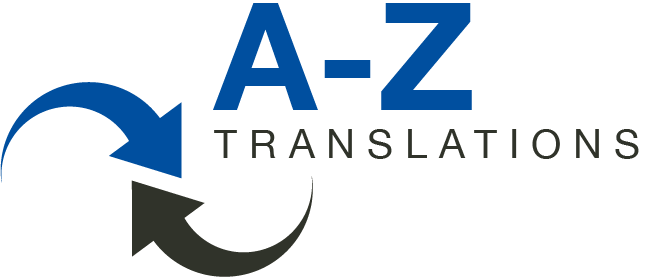Last week, I wrote about how important it is to have a professional translation done of a professional website or other advertising material or really any professional content.
Today, I came across an albeit older article over on HomeBusiness that nevertheless wonderfully mentions pretty much the same things, which is why I would like to share it here. I hope it is helpful in understanding the importance of a good translation – and the impact of a poorly done one.
The High Cost of Cheap Translation
By Stephanie Tramdack Cash – August 24, 2016
Why You Shouldn’t Skimp When Leaping the Language Barrier
You pay for the best product development and manufacturing. Your legal and administrative people are top-notch. You choose your advertising and marketing partners with utmost care.
And then you pick the lowest bidder for your translations. There’s a good chance you’ve just made a costly mistake.
A nationwide big-box retailer went shopping for translation services for signage and advertising work. It settled on a large translation agency offering an impressive pitch and attractive prices. The retailer announced that henceforth all translation work had to be sent through the chosen translation firm.
Pleased with the decision, the retailer had no way of knowing the product would never match the promises. In the translation world, size does not translate into quality. Economies of scale are slight. Like the smallest agencies, the chosen large firm routinely sends projects to freelance translators. The quality of the people they enlist has everything to do with the rates they pay and, consequently, the fees they charged the retailer.
When the retailer’s staff began receiving the finished translations, they could tell the quality was awful. They realized, though, that sending the texts back to be improved would be cumbersome, costly and ineffective. And they were not allowed to contract work out to anyone else.
So what did they do? They sent the work to a high-quality boutique translation agency to translate all over again – naturally at a higher price than for the shoddy version. And how did they pay for it? They buried the extra translation jobs in the corporate budget for graphic design.
So the retailer paid for the translation twice. At the corporate level, things looked normal enough. Higher-ups had no idea that the graphic design budget—hard to audit, after all—was being cannibalized to pay for the massive translation gaffe. Was graphic design quality compromised by this move? Of course. Safety illustrations and other crucial items were produced poorly—or not at all. But everything was on budget, and viewed from above, all appeared to be working smoothly.
The folks on the front line at your company may not have as quirky a story of “cheap” translation to recount. But in other ways, a low-ball translation provider can end up costing you money, quality, management time, image and reputation. Here are a few commonplace problems:
- Bait-and-switch tactics: an agency may show you resumes of the professionals who will be translating your texts. The paths that bring people to a translation career vary greatly, and no single set of criteria guarantees an excellent translation. However, you can look for certain things: academic degrees, serious language study and in-country work experience. But beware – unscrupulous agencies solicit resumes of people with skill levels well above what the agency is willing to pay for, show them off to unwary clients, and source the translations from others who will settle for far less money. In some cases, they even “harvest” resumes from the internet for this purpose.
So how do you know? Find out whether the agency head or representative is a translator (many are not), and quietly assess on your own whether that person takes language, the profession, and your service needs seriously. Ask questions and trust your gut. Ask for and check references of satisfied clients in the same language combination. If you find the agency trustworthy, you may want to ask for a specific translator from the resume lineup.
- The agency’s offer may sound like a good deal, but there may be no proper review process in place. This low-bid “envelope changer” receives the translation, gives it a quick once-over—or not!—and sends it on to the client.
Good translation providers always budget for a second person with similar skills and expertise in your field to perform a careful edit of the translation, often paying a third or more of what the translator receives. Some top-notch firms go beyond this “four-eyes” principle to six eyes – a third person may have a final look-through to make sure all is in order. If you are working directly with an independent translator, expect that person to price in review by a respected colleague.
- The agency or translator may be over-reliant on machine processes. While machine translation and specialized translation software have made great strides, there is widespread agreement among top translators that these are only aids and occasional shortcuts to a quality product. They do not in any sense replace the need for thorough engagement with the text by both translator and reviewer.
- Clunky writing may detract from your message. Good translators are always honing their writing skills on and off the job. They read widely, with attention to good writing, and focus on the skill in professional development sessions. Even good writers who embark on a translation career find it takes time to learn to make a text flow. When this skill is lacking, your translation may have the inescapable sound of—well, a translation. Subtleties crucial to your message may disappear. In a marketing text or in any high-level communication, this may mean missing the boat entirely. The saving of a few hundred or a few thousand dollars on translation may translate into a sacrifice of millions in potential revenue.
You need a team of intelligent, highly trained professionals for your translation work. They have experience in your industry in addition to their foreign-language expertise. They are fine, polished writers, translating only into their native languages despite their near-native fluency in other languages*. Keep all this in mind when you go shopping for language services. The result will be worth the price.
* Note: I personally do not agree with this assessment, as a correct understanding of the source language is equally – and sometimes even more – important. I have in fact seen no few translations done into the native language that were less than good, as the source text had obviously been misunderstood. I would also assume that only those who really are able to write well also in their non-native language would also offer translation services in that direction. And then there is of course always the option of using the second pair of eyes principle to assure you that the translation really is done well.


